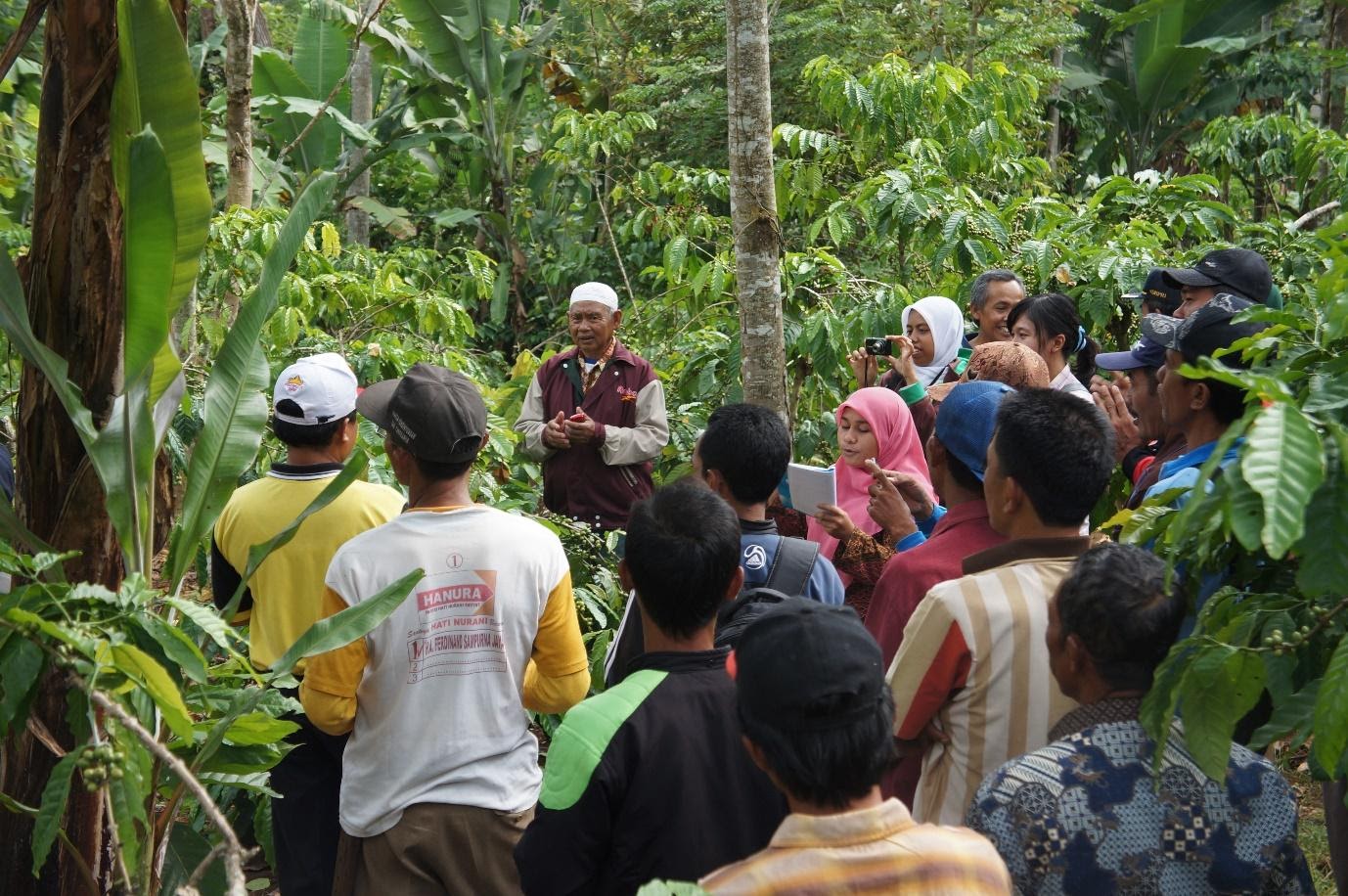In recent years, many multinational enterprises actively acquire raw materials directly from smallholder producers. Ayu Pratiwi studied the effects of partnerships between large enterprises and local coffee producers in Indonesia. Did these partnerships lead to better environmental protection?
The acquisition of raw materials from small local producers is widespread in the coffee industry, which seeks to increase integration in their global value chains. The private sector may serve as an alternative to the government through these backward integration efforts, by ensuring better economic certainty to the farmers through acquired production and simultaneously increasing their capacity through knowledge exchange, market access, and social capital.

Demo plot for MNE’s company community partnership (source: author)
However, little is known about the economic and sustainability impacts on rural producers: whether they become more well-off, whether their practices improve, and more importantly, whether this leads to better environmental protection efforts. Some critics mentioned that farmers have little to no say regarding the coffee prices due to unequal bargaining with big traders. Some others mentioned that intensification practices might be more likely to harm the environment due to the excessive usage of chemical fertilizer that will affect the soil nutrients and deforestation risks because of land clearing.

Enumerators checking farmers’ list before the survey starts (source: author)
Our recently published book chapter in Springer Climate Series examined this case. We followed 240 smallholders robusta coffee farmers in rural Indonesia within three years. We compared the economic performance and sustainability indicators for farmers involved in the MNE supply chains, called “company-community partnership” (hereafter, the partnership), vis-à-vis those who did not. We found that well-connected and wealthier farmers are more likely to engage in such a partnership. The partnership also positively affects the climate adaptation capacity of smallholder farmers in two ways. First, it improves their farm income, thus reducing their income vulnerabilities; and second, through increased propensity to adopt resource-conserving and agroforestry techniques due to more opportunity for knowledge exchange and a higher degree of social capital.

The author (three from the top right) with some of the surveyed farmers (source: author)
The quality of such partnership matters a lot. In this Indonesian case, local agricultural extension officials introduced farmers with the appropriate agricultural technologies for environmental protection, also involved in such partnerships. The enterprises also paid their client farmers with higher commodity prices, up to 10-20% more than the global market price when delivering the export-quality produce, which then translated into better economic performance. Sometimes, the enterprises also channel their corporate social responsibility programs to their smallholder clienteles. Our study suggests that cooperation between private sectors, local government, and local smallholder producers is necessary to ensure better environmental programs that simultaneously lead to shared prosperity across stakeholders involved. However, there is also one crucial caveat: the partnership significantly affected wealthier farmers with well-connected networks and more extensive landholdings, thus potentially overlook the more impoverished subsistence farmers without a strong connection to officials or fellow farmers.
